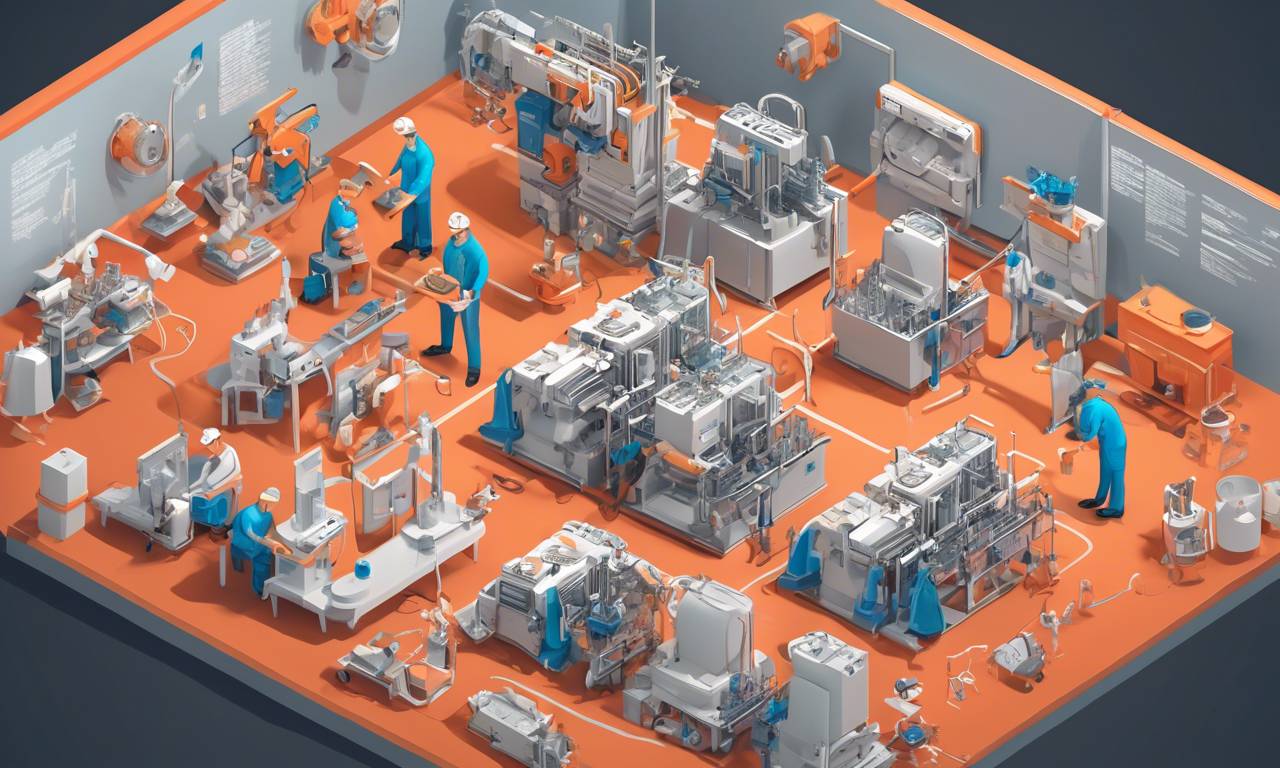Lean Manufacturing: How TPS Principles Can Streamline Operations
Welcome to the world of Lean Manufacturing! If you’re looking to enhance your understanding of how to streamline operations and improve efficiency in your business, you’ve come to the right place. In this article, we will explore the principles of Lean Manufacturing, specifically focusing on how the Toyota Production System (TPS) can revolutionize your operations. So let’s dive right in!
What is Lean Manufacturing?
Lean Manufacturing is an approach that aims to eliminate waste and optimize processes in order to create maximum value for customers. By implementing Lean principles, companies can improve productivity, reduce costs, and enhance overall customer satisfaction. The core idea behind Lean is to continuously strive for perfection by identifying and eliminating any activities or resources that do not add value.
The Toyota Production System (TPS)
The Toyota Production System, often referred to as TPS, is a renowned manufacturing philosophy developed by Toyota Motor Corporation. It serves as a foundation for Lean Manufacturing practices and has been widely adopted by industries worldwide. TPS focuses on two primary pillars: Just-in-Time production and Jidoka.
Just-in-Time (JIT) Production:
In JIT production, the goal is to produce only what is needed, when it is needed, and in the exact quantity required. This eliminates unnecessary inventory and reduces lead times. By implementing JIT, you can significantly minimize storage costs while ensuring smooth flow throughout the production process.
Jidoka:
Jidoka refers to building quality into each process step by empowering workers to identify abnormalities and stop production when necessary. By giving employees the authority to halt production if they detect defects or issues, you can prevent defective products from progressing further down the line. This ensures that quality is maintained at every stage, reducing rework and customer complaints.
Applying TPS Principles to Streamline Operations
Now that you understand the fundamentals of Lean Manufacturing and the TPS philosophy, let’s explore how you can apply these principles to streamline your operations:
1. Identify and Eliminate Waste:
Waste is any activity or resource that does not add value to the customer. By conducting a thorough analysis of your processes, you can identify areas of waste such as overproduction, excess inventory, unnecessary transportation, waiting time, and defects. Once identified, take action to eliminate or minimize these wastes to optimize your operations.
2. Optimize Flow:
Smooth flow is crucial for efficient operations. Analyze the movement of materials and information within your processes and identify bottlenecks or areas of congestion. Implement strategies such as layout optimization, standardized work procedures, and visual management to ensure a seamless flow from start to finish.
3. Empower Your Team:
Your employees are a valuable asset when it comes to streamlining operations. Encourage them to actively participate in process improvement initiatives and provide them with the necessary training and tools. Empowered employees are more likely to identify inefficiencies and contribute innovative ideas for improvement.
4. Continuously Improve:
Continuous improvement is at the heart of Lean Manufacturing. Foster a culture of continuous learning and improvement within your organization by implementing practices such as Kaizen events, where cross-functional teams come together to solve specific problems or improve specific processes. Regularly review your performance metrics and set ambitious goals for further optimization.
Frequently Asked Questions (FAQs)
Q: Can Lean Manufacturing be applied to service industries?
A: Absolutely! While Lean Manufacturing originated in the manufacturing sector, its principles can be successfully applied to service industries such as healthcare, hospitality, and finance. The key is to focus on eliminating waste and improving value-added activities.
Q: How long does it take to implement Lean Manufacturing?
A: The implementation timeline varies depending on the size of your organization and the complexity of your processes. It is a journey that requires commitment and continuous effort. Start small with pilot projects and gradually expand the Lean principles across your entire operation.
Q: What are some common challenges faced during Lean implementation?
A: Some common challenges include resistance to change, lack of employee engagement, and difficulties in sustaining improvements. Overcoming these challenges requires effective leadership, clear communication, and a supportive organizational culture.
Congratulations! You have now gained valuable insights into Lean Manufacturing and how TPS principles can streamline operations in your business. Remember, Lean is not a one-time project but a continuous journey towards excellence. Embrace the philosophy, involve your team, and enjoy the benefits of improved efficiency and customer satisfaction. Good luck!





 By
By
 By
By
 By
By

 By
By